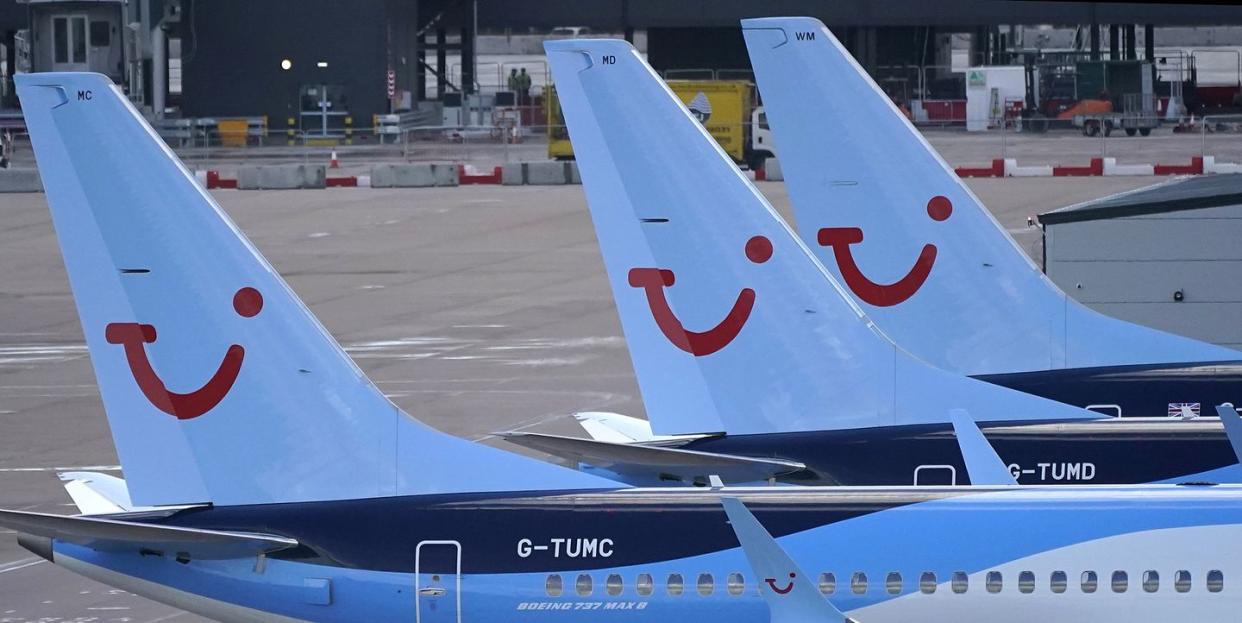Report: Ethiopian Airlines Pilots Followed Boeing's Safety Procedures But Couldn't Prevent Crash

Pilots of the Ethiopian Airlines flight that crashed last month referred to Boeing's safety guidelines while trying to rescue the aircraft from a fatal nosedive, according to a Wall Street Journal report early Wednesday. It's the latest development to heap scrutiny and spotlight on the plane manufacturer, which has seen all of its 737 Max 8 and 9 aircraft grounded around the world after two major crashes in a five month span.
Citing two people familiar with the crash's preliminary investigation, pilots made numerous efforts to override the automated anti-stall system that tilted the plane's nose downward shortly after takeoff. But despite at least four attempts to disengage the feature, known as Maneuvering Characteristics Augmentation System (MCAS), Flight 302 crashed just minutes after taking off from Addis Ababa airport, killing all 157 people onboard.
Alarmingly, pilots turned off the MCAS system, but still couldn't rescue the plane from its disastrous course. The MCAS is activated when the plane is stalling, and automatically pushes the aircraft's nose downward as a safety precaution. Investigators probing Lion Air Flight 610, which crashed last November shortly after takeoff in Indonesia, note the MCAS pushed the Max 8's nose down upwards of 24 times before it plunged into the Java Sea killing 189 people.
Authorities investigating the Ethiopian Airlines flight have remarked upon the "clear similarities" between both flights, each of which took place on Boeing's highly popular Max 8 jets. The new findings come from Flight 302's black box data recorders.
The events have placed Boeing's relationship with the Federal Aviation Administration (FAA) under harsh scrutiny. The agency's approval process for Boeing's aircraft has been criticized as lax, and members of the agency were recently grilled during a Senate hearing over that very same matter. Boeing, on the other hand, has invited criticism for charging airlines an extra fee for information on the MCAS, rather than supplying it for free. Authorities have suggested that pilots received a lack of training on the system before flying the planes. According to the Lion Air investigation, pilots consulted the aircraft's safety manual while trying to steer the plane to safety.
Boeing announced it would deliver a software update to its Boeing Max 8 and 9 fleet in the immediate aftermath of the Ethiopian Airlines disaster, which the FAA "tentatively" approved late last month. The fix might take considerably longer than that, however: "The FAA expects to receive Boeing's final package of its software enhancement over the coming weeks for FAA approval," the agency said in a statement Monday.
Source: Wall Street Journal, CNN
('You Might Also Like',)

